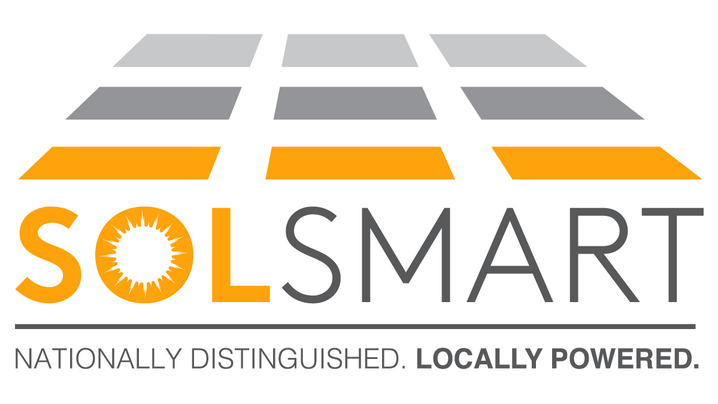
Key Project Information
Funder
Period of Performance
Location
United StatesICMA's Role
Project Details
SolSmart offers national recognition and no-cost technical assistance that helps local governments accelerate solar deployment and makes it possible for even more American homes and businesses to access affordable and renewable solar energy to meet their electricity needs.
The SolSmart program launched in 2016 with an initial grant from the U.S. Department of Energy. An important goal of the program is to reduce solar "soft costs," the non-hardware costs that include permitting, financing, and installing solar. These costs make up about two-thirds of the cost of a solar installation. Actions that local governments take can significantly reduce soft costs and encourage nationwide solar energy growth. In 2022, the Department of Energy extended the SolSmart program for an additional five years through 2027. In this expanded program, SolSmart aims to designate an additional 500 communities.
Learn more about SolSmart and apply
Since the program launched in 2016, more than 500 cities, counties, and regional organizations in 43 states, the District of Columbia, the U.S. Virgin Islands, and Puerto Rico have achieved SolSmart designation, representing over 139 million people.
SolSmart Program Success
Local government organizations discuss how participating in SolSmart has benefited their operations and procedures, and as a result, their communities' businesses and residents.
How SolSmart Helps Your Community
Local municipalities, as well as counties and regional organizations, play important roles in establishing goals for clean energy deployment, implementing strategies to improve local market conditions, and creating supportive plans and policies. However, local policies and procedures can sometimes create unnecessary paperwork, red tape, and other burdensome requirements, increasing the cost of solar and discouraging solar companies from moving to the area. By streamlining these requirements and taking other steps to encourage solar development, communities become "open for solar business." Whether your community is new to solar energy or an established leader, the SolSmart Program can connect you to valuable resources and support to implement your goals.
The SolSmart program has two key parts. First, the program provides no-cost technical assistance to help local governments follow national best practices to expand solar energy use in their jurisdictions. Second, it recognizes and celebrates these communities with SolSmart designations of Platinum, Gold, Silver, and Bronze.
SolSmart has identified best practices in key areas including permitting and inspection, planning and zoning, government operations, community engagement, and market development. SolSmart's technical assistance team includes partner organizations with expertise on solar energy and provides one-on-one support, resources, and examples customized to the needs to each community. Every municipality, county, and regional organization who participates in SolSmart is eligible to receive this technical assistance at no cost as they work to implement best practices and achieve points toward their designation.
ICMA and the Interstate Renewable Energy Council (IREC) have lead roles in the SolSmart Program. Since 2022, ICMA's role includes
- Promoting SolSmart to cities, counties, and towns through ICMA's outreach channels, including the ICMA website, social media, and conference sessions.
- Coordinating technical assistance efforts to communities seeking designation.
- Recognizing and publicizing communities that achieve the SolSmart designation.
Learn more about SolSmart and apply
For additional information, see frequently asked questions on the SolSmart site, or email admin@solsmart.org.
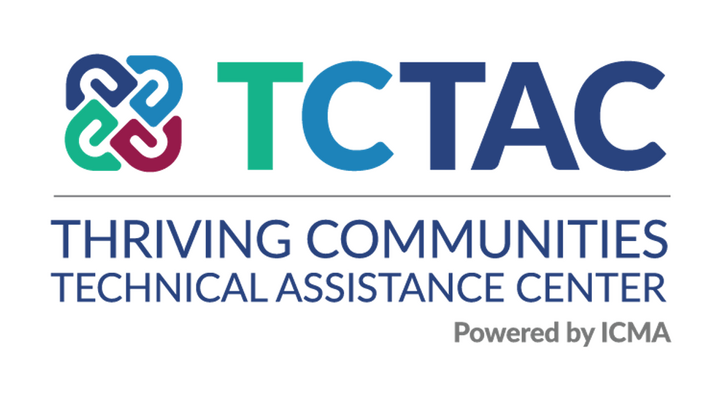
Key Project Information
Funder
Period of Performance
Location
United StatesICMA's Role
Project Details
Funded by the U.S. Environmental Protection Agency (EPA) in partnership with the U.S. Department of Energy (DOE), the Thriving Communities Technical Assistance Centers Program (TCTACs) will support communities, particularly those adversely and disproportionately affected by environmental, climate, and human health harms and risks, to identify, access, and deploy resources to create transformative change for communities and individuals.
Collectively, we are building the Thriving Communities Network that connects and supports the local and regional leaders advancing environmental action in their communities across the country.
Regional Technical Assistance Centers
A network of regional Technical Assistance Centers will provide technical assistance, training, and resources to help communities, including local governments, nonprofit organizations, and other community-serving institutions, to access the resources they need to succeed. The Technical Assistance Centers will build the capacity of communities to navigate federal grant application systems, write strong grant proposals, and effectively manage grant funding. Support may include guidance on community engagement, meeting facilitation, and translation and interpretation services for limited-English-speaking participants. Each Regional Technical Assistance Center will be tailored to meet the needs of their region.
National Technical Assistance Centers
ICMA and two other organizations have been selected to support the Thriving Communities Network at the national level. Together, our organizations will:
- Leverage our networks of local governments, state and tribal governments, nonprofits, community leaders, and public health and environmental action advocates to scale solutions nationally.
- Support the Regional Technical Assistance Centers with training, resources, technical assistance, and opportunities for peer learning.
- Provide additional technical support to communities in ways that supplement and support the regional centers.
- Raise awareness and engagement by engaging key stakeholder groups through our online platform, conferences, events, resources, and trainings.
- Accelerate the dissemination of successful tools, models, and resources.
Contact
For additional information about TCTACs, visit the EPA website, or contact tctac@icma.org.

Key Project Information
Funder
Period of Performance
Location
PhilippinesICMA's Role
Project Details
The Strengthening Urban Resilience for Growth with Equity (SURGE) Project was the flagship project of the USAID/Philippines’ Cities Development Initiative (CDI). The CDI is a “whole-of-Mission” approach that engages a strategic array of USAID activities with the primary goal of promoting broad-based and inclusive growth outside of Metro Manila through second-tier cities that can serve as engines of economic growth.
The goal of the SURGE project was for second-tier cities outside the urban core of Metro Manila to become economically thriving and resilient growth centers. SURGE assisted cities and adjacent areas to plan effectively, guarantee basic public services, reduce business transaction costs, promote competitiveness, and support sustainable development. The project worked within the existing legislation, regulations, and policies of the Government of the Philippines and through existing government agencies and departments with responsibility for local development—and involved stakeholders from each city government, the business community, local academic institutions, women’s organizations, and other civil society groups. By building the capacity of local governments to provide quality services with efficient management and oversight practices, SURGE envisioned that cities would become thriving and resilient centers where residents want to live, and businesses want to operate. Based on individualized competency-based city assessments, the project provided capacity development for a range of services in eight secondary cities including urban planning, business licensing, water and sanitation, public financial management, and land tenure.
In 2018, in response to a crisis resulting from armed conflict in Marawi City, the SURGE Project developed a package of assistance to support the Philippine government in rebuilding Marawi City and surrounding areas to 1) Improve access to water and sanitation in communities; 2) Create viable businesses and meaningful jobs for individuals displaced by conflict; and 3) Construct trading centers to jumpstart economic activities.
Through the Women’s Global Development and Prosperity (W-GDP) initiative, SURGE assisted women in CDI cities and adjacent areas to improve their capacity for entrepreneurship, enabling them to enhance their technical and entrepreneurial skills, access new markets and business practices and pivot their businesses to the digital space.
Featured Updates
The work of the SURGE Project is highlighted in the following articles:
- City and Business Leader Model Resilience in Philippines
- Launch Of Urban Development Learning Program in the Philippines
- ICMA Volunteers Share Leading Practices for Revenue Generation
- Strengthening Local Capacity in the Philippines: Exciting Progress
- Helping Women Entrepreneurs in teh Philippine City of Cagayan de Oro
Cities Rising: Philippine Regional Urban Centers in Focus
This collection of visual stories demonstrates the blending of Philippine urbanism and economic development at its finest – how citizens, led by dedicated visionary leaders, planners, scholars, entrepreneurs, living and working in the country’s fastest growing cities, shape and re-shape their urban ecosystem.
USAID/SURGE at a glance

Key Project Information
Funder
Period of Performance
Location
United StatesICMA's Role
Project Details
In the last two decades, technological developments have dramatically reduced the cost of installing solar photovoltaic systems in the United States, and large-scale solar projects have experienced a new surge in market share. According to the American Clean Power Annual Market Report, the United States added a total of 33.8 gigawatts (GW) of new utility-scale clean energy projects in 2023, a 12.5% increase from the previous annual installation record set in 2021. Utility-scale solar saw an increase of 14.2 GW, accounting for 55% of the overall development pipeline. Because of this increase, many local governments are now experiencing the development of large-scale solar projects in their communities.
Funded by the U.S. Department of Energy, Solar@Scale is a partnership between ICMA and the American Planning Association (APA) that aims to help cities, towns, counties, and special districts understand and realize the potential benefits of large-scale solar development.
How Solar@Scale Helps Your Community
ICMA and APA convened a steering committee of stakeholders representing the private and public sector with expertise in public administration, planning, economic development and solar development to identify strategies for overcoming common local barriers to the development of large-scale solar in communities of all sizes across the United States. Additionally, the Solar@Scale team developed a comprehensive guidebook and has translated these strategies into easily digestible trainings, webinars, and workshops that outline scalable tools for planners and local officials. As of March 2024, the Solar@Scale team has trained over 2,600 local government officials to help improve local planning and development processes, and to align large-scale solar projects with community goals.
Solar@Scale Guidebook
The purpose of this guidebook is to help local government practitioners—including planners, economic development professionals, local government managers, and elected and appointed officials—make decisions that improve large-scale solar development outcomes.The Third Edition of the Solar@Scale guidebook was published on the ICMA website on January 30, 2024.
Solar@Scale Topic Webinars
In 2025, the Solar@Scale team developed topic webinars addressing frequent questions and requests for guidance, including best practices in planning for large-scale solar. These webinars include first-hand examples from local jurisdictions and property owners, as well as experts in the planning and solar fields.
Solar@Scale Webinar Series
This 9-part webinar series was released following the publication of the Solar@Scale Guidebook and begins with a Guidebook overview webinar. The following eight parts mirror the eight Guidebook modules, from understanding the market for large-scale solar development, to improving land-use decision-making, to zoning and community planning for large-scale solar. Each webinar includes real-world, community examples and takeaways from speakers who work in local government and the solar industry alike.
Free Hands-on Workshops
To help local officials further their understanding of large-scale solar, ICMA is conducting a series of half-day hands-on workshops based on the Solar@Scale guidebook:
- Free training customized to your interests, issues, and specific situation.
- Educators leading the workshop are experienced in both the science and how solar projects fit in with such local government concerns as permitting.
- All materials included.
- Option for remote access.
No-cost in-person workshops only require meeting space, outreach to your staff and others interested in attending, and light coordination on logistics.
Sign Up for Updates and Events
For more information about Solar@Scale, contact ICMA program director, Debra Perry, at dperry@icma.org.
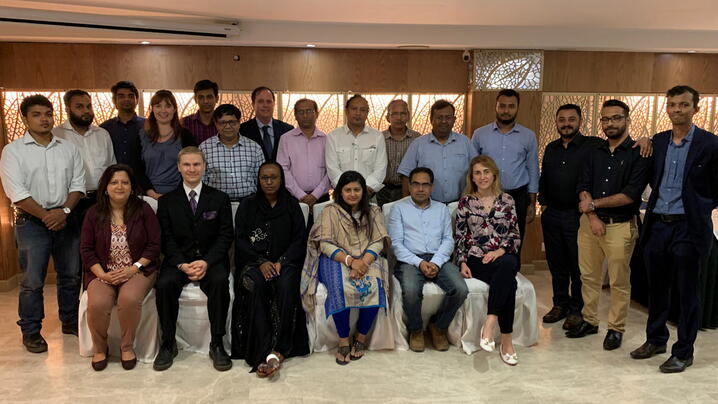
Key Project Information
Funder
Period of Performance
Location
IndiaICMA's Role
Project Details
Funded by the Department of State’s Bureau of Counter Terrorism, ICMA implemented the Preventing Terrorism Through Community Resilience Initiative (CRI) in two communities in Bangladesh: Uttara in North Dhaka and Sayedabad in South Dhaka. The project aimed to strengthen the target communities with documented cases of radicalization by the improving the wellbeing of youth through community based multidisciplinary intervention mechanisms. ICMA implemented the program with its local partners Rupantar, Bangladesh Enterprise Institute (BEI), and Psychological Health and Wellness Clinic (PHWC), along with US-based partner One World Collaborative.
Based on rigorous research and analysis of existing international models and programs and the challenges and limitations to the provision of adequate psycho-social support to vulnerable individuals/groups in the target communities , ICMA developed a multi-layered, community-based interventions model for service providers that applies a multidisciplinary approach. The model provides all the needed elements for systematic intervention programming in Bangladesh, is also scalable and can be customized and replicated in other communities globally. It is based on peer-to-peer mentorship and delivery of psychosocial services while building skills, self-confidence, and trust. It enhances the well-being of vulnerable individuals through programming that connects them to community resources, enhances their positive social support network, and builds their potential to contribute positively to their communities, offering a more productive alternative to violent extremist ideology and life path. ICMA engaged youth leaders as mentors to vulnerable youth from the same communities and paired them in bi-monthly group activities focused on building life skills and also helped create a supportive network of peers and adults around them.
In addition to the model itself, ICMA and its partners developed a Handbook for PVE intervention programming. While the model was built for and piloted in Bangladesh, the intent of the handbook is to provide all of the necessary tools and guidance such that the program could be continued in the pilot target communities, expanded within Bangladesh, and/or replicated and appropriately modified in other communities and countries.
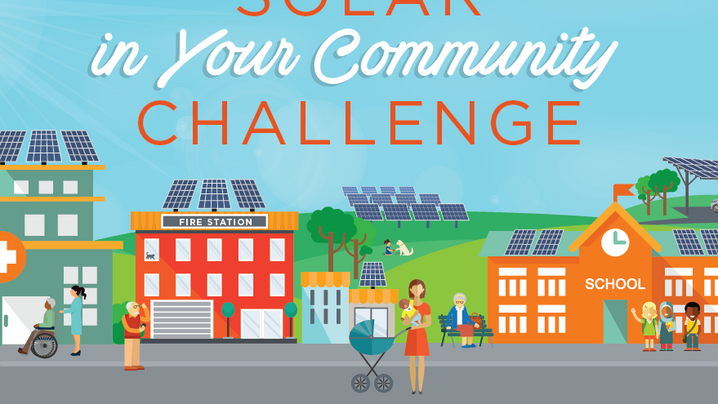
Key Project Information
Funder
Period of Performance
Location
United StatesICMA's Role
Project Details
The Solar in Your Community Challenge (SIYC) was a $5 million prize competition, funded by the U.S. Department of Energy (DOE), to expand solar access to underserved segments of the market, specifically low-and-moderate-income (LMI) households; non-federal governments (i.e. state, local, and tribal), and non-profit organizations. This challenge supported the creation, demonstration, and scaling of innovative, replicable, and sustainable business and financial models that could successfully unlock solar access to these underserved segments. ICMA became the prize administrator for the challenge in March 2018 to support DOE in the implementation of the project. As the prize administrator, ICMA supported the teams, coaches and marketplace consultants throughout the challenge and managed the distribution of all funds related to the challenge.
Launched in 2016, the challenge accepted 172 teams across 40 states, the District of Columbia, Guam, and Puerto Rico. Over the course of the 18-month period of performance (May 2017 – October 2018), the challenge provided teams with technical and financial resources to help them implement their projects. All teams received some technical assistance in the form of trainings, workshops, and coaches. 121 teams also received technical assistance vouchers to pursue additional support. A smaller set of 34 teams received direct financial resources in the form of seed funds. Upon completion of the SIYC, DOE and ICMA announced five prize winners for a total of $1 million dollars:
- The CARE Project (Denver, Colorado) - Grand Prize, $500,000 prize
- Community Solar for Community Action (Backus, Minnesota) - Runner-up, $200,000 prize
- The Kerrville Area Solar Partners (Kerrville, Texas) - Best LMI Program, $100,000 prize
- Making Energy Work for Rural Oregon (Portland, Oregon) - Best Nonprofit Project, $100,000 prize
- Fellowship Energy (Burlingame, California) - Best Nonprofit Program, $100,000 prize
In total, the winning teams proposed 25.7 megawatts of solar energy projects across the country by 2020, benefitting more than 1,200 households and 18 nonprofit organizations through significant energy cost savings and community-level solar skill building.
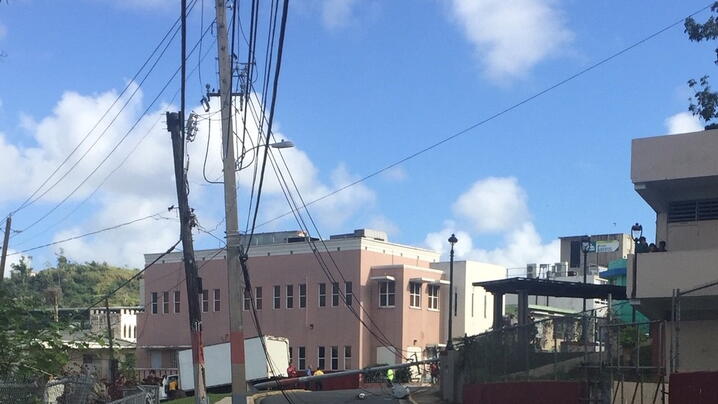
Key Project Information
Funder
Period of Performance
Location
United StatesICMA's Role
In 2017, Puerto Rico was stricken by two hurricanes—Irma and Maria—that wiped out much of the island’s power, water, and communications infrastructure, hampering the coordination of recovery efforts and the delivery of basic municipal services.
Through funding provided to the RAND Corporation by the U.S Federal Emergency Management Agency (FEMA), ICMA helped assemble a team of ICMA Members and partners as pro-bono volunteers to conduct service and governance assessments of Puerto Rico’s 78 municipalities as they recovered from Hurricanes Irma and Maria.
Together with FEMA planners and students and faculty from the University of Puerto Rico, the volunteers conducted research and interviewed mayors, emergency managers, finance directors, public works officials, and other department heads and staff to develop a road map to strengthen municipal disaster resilience in the future. Assessment of municipalities proved difficult given road closures, rolling blackouts and emotional and mental drain that many of the municipal staff were dealing with post-hurricanes, something noted as part of the report and need for additional social services to municipal staff.
Despite the challenges, the team gathered information about the municipal leaders’ long-term priorities to improve the resilience of their communities. The findings informed recommendations for technical assistance and long-term strategies that were reflected in the project’s final report, published by the Government of Puerto Rico, entitled “Transformation and Innovation in the Wake of Devastation: An Economic and Disaster Recovery Plan for Puerto Rico.” Included in the report were recommendations and suggested strategies for providing longer term technical assistance to Puerto Rico’s municipalities in topics like shared services and mutual aid, public private partnerships, and ways to improve capacity building expertise, including through strengthening local associations. This report in turn helped to inform the Governor’s Congressional Disaster Recovery plan mandated by Congress.

Key Project Information
Funder
Period of Performance
Location
United StatesICMA's Role
Project Details
Energy Star Research and Outreach
ICMA provides knowledge resources, articles and other content about ENERGY STAR to local government and community practitioners. ICMA utilizes our substantial communication and outreach channels, including e-newsletters, social media, ICMA website, and print publications to feed the local government marketplace with the latest appropriate resources for local governments. Original content created for this project has been developed to assist local government officials to attain greater energy efficiency for their community members through ENERGY STAR's various program offerings.
Original Publications
Reports and Case Studies
- Infographic: Energy Efficiency Checklist for Local Governments: This checklist provides a simple yet broad list of steps to improve energy efficiency in communities. It is available as a downloadable pdf and includes links to many useful resources for local governments.
- Local Governments and EPA's ENERGY STAR National Building Competition (2014): This publication has been developed to assist local governments to attain greater energy efficiency for their community members through ENERGY STAR program offerings. The report includes a description of the U.S. EPA's ENERGY STAR annual National Building Competition: Battle of the Buildings and includes case studies of three local governments that have participated in the competition - Charlotte, NC; Cary, NC; and Hillsborough County, FL.
- ENERGY STAR Case Study - Charlotte, NC (2013): This case study provides an account of the experience of local government staff obtaining ENERGY STAR certification for the Government Center building in Charlotte, NC.
- ENERGY STAR Case Study - Farmington Hills, MI (2013): This case study describes how Farmington Hills, Michigan, has integrated ENERGY STAR Portfolio Manager into its energy saving initiatives and direct cost savings into the city's Sustainability Fund.
- ENERGY STAR Case Study - Lawrence and Douglas County, KS (2013): This case study describes how communities of Lawrence, KS, and Douglas County, KS, have worked both separately and inter-jurisdictionally to achieve greater energy efficiency using ENERGY STAR programs. Specifically, the use of Portfolio Manager has allowed both jurisdictions to effectively monitor and decrease their energy use, identify areas for improvement, and increase transparency and engage the community in energy-saving initiatives.
- ENERGY STAR Case Study – Kansas City, MO (2016): This case study, Creating a Cost-Effective and Energy Efficient Kansas City with EPA's ENERGY STAR, highlights the work Kansas City has done in partnership with ENERGY STAR over the last several years to improve the energy efficiency of its municipal buildings.
Podcasts
- ENERGY STAR in Farmington Hills, Michigan (2013): This podcast features Nate Geinzer, Assistant to the City Manager in Farmington Hills, Michigan, talking about his community's decision to utilize ENERGY STAR programs to achieve greater energy efficiency and sustainability and the challenges and benefits associated with this initiative.
Additional Resources You Can Use in Your Community:
- ENERGY STAR Partnership allows access to promotional materials and co-branding opportunities for increased recognition.
- ENERGY STAR Menu of Offerings - In this two-page table, EPA's ENERGY STAR program provides an overview of the many tools and resources offered to help organizations save money, improve energy efficiency, and fight climate change.
- Portfolio Manager EPA's energy measurement and tracking tool enables strategic energy management and use of key performance indicators at no cost.
- ENERGY STAR Energy Efficiency Competition Guide helps local governments understand how to plan, implement, and market their own energy efficiency competition.
- ENERGY STAR Certification is available to eligible buildings that score in the top 25 percent in energy efficiency.
- EPA's National Building Competition is a nationwide competition among commercial buildings to reduce energy and water use.
- EPA's Benchmarking and Building Performance Standards (BPS) Policy Toolkit informs decision makers who are considering adopting policies focused on reducing energy use and emissions from existing commercial and multifamily buildings.
Funder: The Cadmus Group through a mission support contract with EPA
Contact: Scott Annis
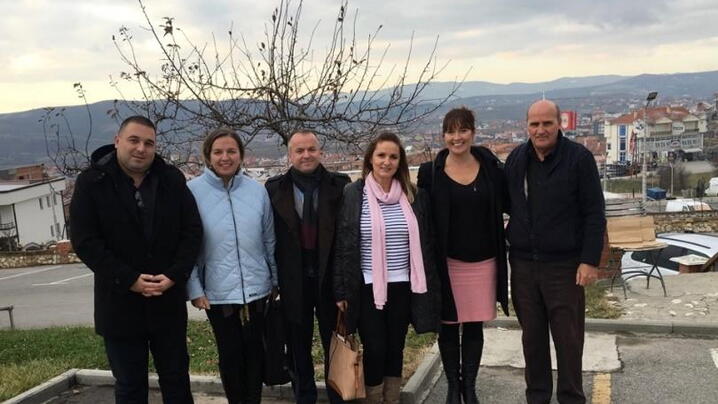
Key Project Information
Funder
Period of Performance
Location
AlbaniaICMA's Role
Project Details
Municipalities are in a strong position to initiate programs aimed at countering violent extremism (CVE). These often take the form of activities that contribute to overall community resilience, such as hate crime prevention, support for youth programming, inter-faith dialogue, and job creation. Recognizing the importance of local efforts like these, the U.S. Department of State Bureau of Counterterrorism and Countering Violent Extremism awarded ICMA a grant to implement a project to leverage the potential of cities in 2016-2017. The goal of the project, Building CVE Expertise for Municipal Authorities in the Western Balkans, was to foster partnerships between government, civil society, and the private sector to increase community engagement and resilience against violent extremism.
The project sought to network, train, and mobilize mayors and municipal leaders across the Western Balkans region to identify and address risk factors associated with violent extremism through engagement in the Strong Cities Network (SCN), a global organization managed by the Institute for Strategic Dialogue (ISD), London, U.K. ISD is dedicated to building social cohesion and community resilience to prevent such extremism. Activities included:
- Collecting information from targeted cities to assess violent extremism dynamics and municipal authorities’ particular needs
- Implementing a range of activities, such as bilateral and regional trainings, to help municipal authorities learn and exchange best practices on how to prevent and mitigate violent extremism
- Building membership in the Strong Cities Network.
The project team conducted an outreach tour that involved 85 meetings and engaged 58 local governments. They organized capacity-building workshops for 236 participants in four of the six countries and a final regional conference for municipalities of all six countries, attended by 107 participants from 28 local governments. Pre- and post-workshop polling indicated a substantial increase in knowledge of CVE and confidence to contribute to national and international efforts to counter violent extremism. The project also facilitated an increase in Strong Cities Network membership from 10 to 42.
